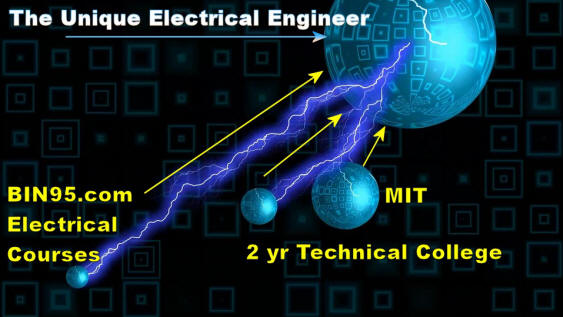Electrical Engineering students ask...
- Home >
- articles >
- electrical >
- engineering >
- theoretical electrical engineering
Why so much theoretical and so little practical application?

It is a very common question ask often by Electrical Engineering students. The answer given to those BSEE students is also common, but seldom satisfying. So I decided to answer the question "Why is there so much theoretical and so little practical application in Electrical Engineering programs [so little hands-on]?", with the following analogy. I hope it helps some students better understand why.
Think of it like your final goal is to be a Unique beautiful piece of pottery. Your scholastic/theoretical college time is the clay in which to later be shaped into that unique beautiful piece of pottery that every employer wants. Your college could be high-quality giving you just the right mix of ingredient that is easy for future employers to work with when molding you in to their desired piece of art, and contribute to making you a more solid piece of pottery out of that clay. A piece that will last for many years come.
Or, your college could get that mix wrong, resulting in poor quality clay, that crumbles when employer tries to work with it, or they can just never seem to get that beautiful piece of pottery like other employers got out of their clay. Granted, the employer not being able to achieve their desired result, could be the artist (employer), or the clay (you), or a combination of both. But even the best artist (like Boeing for example), can’t make a beautiful piece of art, if the clay mixture is not of acceptable quality.
So then it comes to shaping the clay over its life cycle. If your college tossed out some of the old school ingredients and techniques that most others use because it has been done that way since ancient Greek times, and get innovative with new ingredients and techniques, you can be better clay than most others. And the top artist (employers) will want you over others. Your college could even pre-shape you (give you more practical app, less theoretical and scholastic) making you even easier for the artist (employer) to work with. That is why students around the world seek to get created by MIT and other top colleges, and the best artist (employers) seek clay (students) from those schools.
If you are a student from an old school of thought college, your realize and accept that fact, you can seek to pre-shape your self by getting practical app, experience after the fact. IE: technical schools, courses, internships, etc. Making yourself the more desired clay (student/employee).
Keeping in mind, not every employer can afford the best clay, and not every student can afford the best education. Ultimately you have to live within your means, and often life is not fair. You just have to do the best you can with what you got, and keep striving for better. The bottom line is the less quality school you go to, the more you will have to do and the longer it will take before you reach yours and your potential employer’s goal of you being the best Unique beautiful piece of pottery you can be.
Best of luck Electrical Engineering students.
Note: BIN95's business practice is to offer all products at lowest possible prices (student price), to everyone. So, the publically listed prices on https://bin95.com are the lowest already.
BIN95 also offers Technical Schools and Corporate Training Departments the best for less by providing unlimited user, life time licenses with no annual fees, one time purchase on most software training courses and simulation titles offered.
About the Author:
Don Fitchett is President of Business Industrial Network (BIN), an Industrial training company specializing in PLC training. Don has held that position for over 20 years and has been in the industrial training industry for over 28 years.
